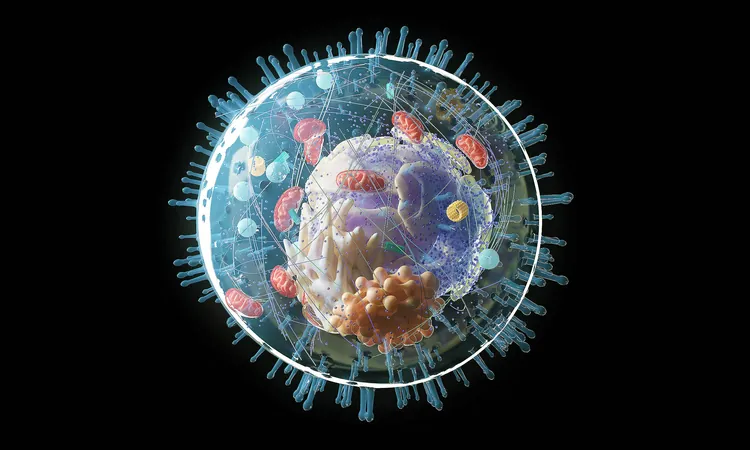
Shocking Discovery: Memory Isn’t Just a Brain Thing – Your Body Remembers Too!
2024-11-17
Author: Lok
For decades, we have clung to the idea that memory is a function exclusive to the brain. Traditionally, it has been believed that the brain, especially its cells, is the sole keeper of our memories. But an exciting new study from a team of researchers challenges this long-held belief, revealing that other cells throughout the body also play a role in memory formation and learning.
This groundbreaking research opens up various questions about how we understand memory. Researchers from New York University, led by Nikolay V. Kukushkin, have conducted experiments that suggest our body’s non-brain cells can learn and retain memories, raising fascinating possibilities for future treatments surrounding memory-related disorders.
Understanding Memory Mechanisms
Memory operates in our brain like a sophisticated filing system. When we encounter something new—whether it's an event or a fact—the brain encodes that experience into patterns of neural activity, which are then stored in different regions corresponding to the type of information being processed. For example, images may be recorded in visual processing centers while numerical data finds its way into areas related to language.
However, the amazing twist in the findings of this study suggests that non-brain cells can recall these experiences too. By employing the well-known massed-spacing effect—which asserts that spaced learning improves memory retention—the research team was able to demonstrate that non-brain cells, particularly those from nerve and kidney tissues, could respond to learning in a manner similar to brain cells.
Revolutionary Experimentation
In an innovative laboratory experiment, the team exposed these non-brain cells to chemical signals, mimicking neurotransmitter activity during learning. The results were astounding. These cells not only activated a gene associated with memory—akin to brain cells—but also showed a remarkable ability to recognize patterns in the timing of these pulses.
When pulses were administered in a spaced manner, the memory gene in these non-brain cells was activated more vigorously, highlighting an ability to learn from spaced repetition—a phenomenon well-documented in learning theory. Kukushkin explains that this discovery implies the capacity to learn through repetition isn’t restricted to brain cells, suggesting all cells may possess this fundamental ability.
Future Implications and Health Benefits
This discovery goes beyond theoretical implications. It hints at practical applications in treating various health conditions related to memory and learning. Kukushkin notes, “This opens new doors for understanding how memory works and could lead to advancements in enhancing learning as well as treating memory-related issues more effectively.”
Imagine a world where we could potentially influence the memory capabilities of entire body systems to foster better health. For instance, consider how our pancreas might ‘remember’ the nutritional patterns from our past meals, aiding in the regulation of blood sugar levels. Or what if we could understand how cancer cells adapt to chemotherapy based on their cellular memory?
The Bottom Line
As we delve deeper into this eye-opening research, the central question remains—how will this influence our approach to memory formation and treatment strategies in medicine? The answers will likely reshape our understanding of neuroscience and cellular biology in the years to come.
Stay tuned as we keep an eye on this thrilling development in memory research, because the revelations might just blow the lid off everything we thought we knew about how our body and brain retain memories. Don’t miss out!






 Brasil (PT)
Brasil (PT)
 Canada (EN)
Canada (EN)
 Chile (ES)
Chile (ES)
 España (ES)
España (ES)
 France (FR)
France (FR)
 Hong Kong (EN)
Hong Kong (EN)
 Italia (IT)
Italia (IT)
 日本 (JA)
日本 (JA)
 Magyarország (HU)
Magyarország (HU)
 Norge (NO)
Norge (NO)
 Polska (PL)
Polska (PL)
 Schweiz (DE)
Schweiz (DE)
 Singapore (EN)
Singapore (EN)
 Sverige (SV)
Sverige (SV)
 Suomi (FI)
Suomi (FI)
 Türkiye (TR)
Türkiye (TR)